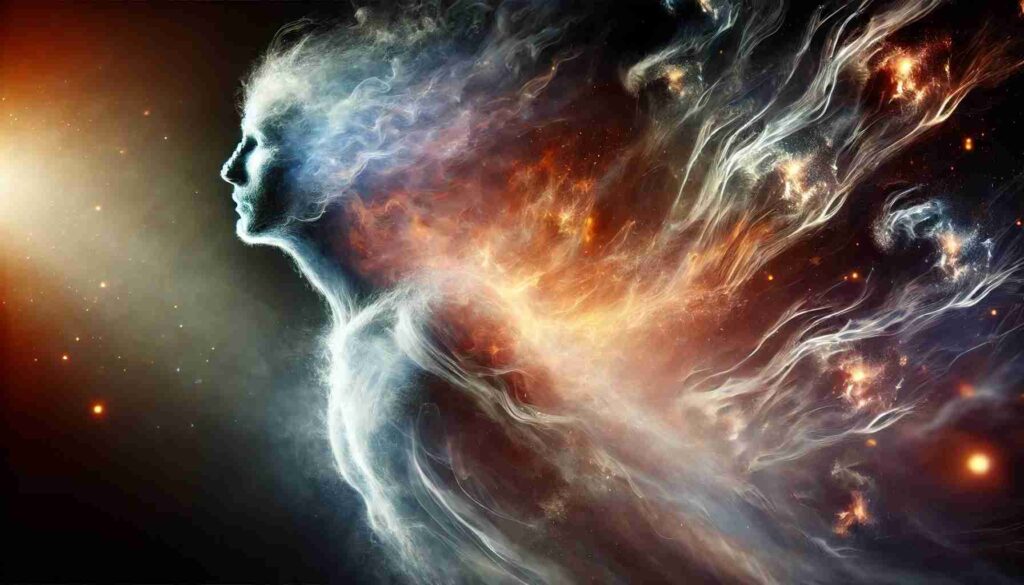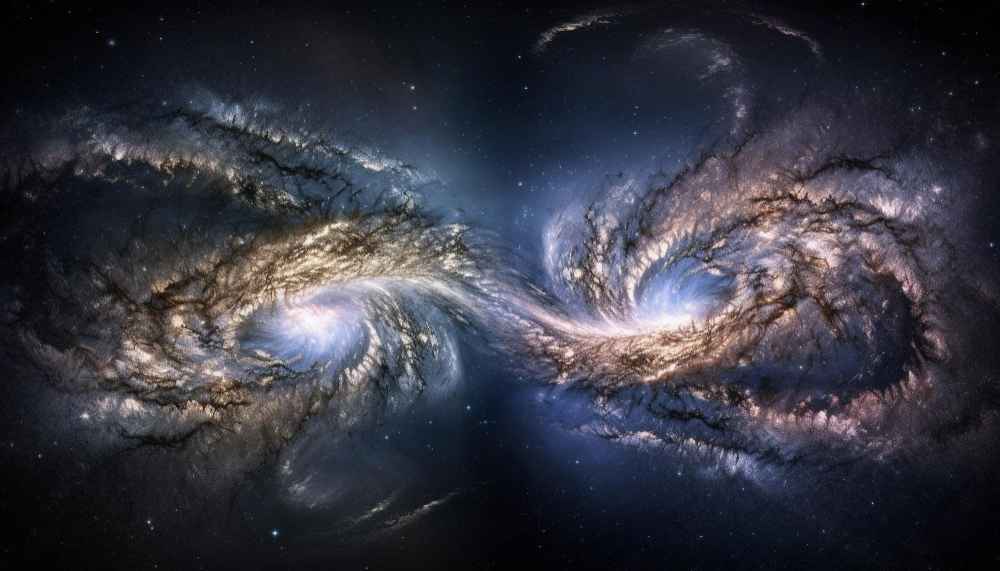Introduction
In a world where science fiction often blurs the lines of reality, the fascinating concept of parallel universes has captured both the imagination of the public and the attention of physicists. Recent breakthroughs in theoretical physics suggest that the multiverse a collection of potentially infinite universes, each with different outcomes and characteristics might not be the stuff of mere fiction. But could we ever travel to those parallel universes? In this article, we look at the existing theories on traveling to the multiverse and the scientific hurdles it presents, as well as what such a journey will call for humanity to do.
The Concept of Parallel Universes
The concept of multiple universes or parallel universes arises from several theoretical constructs within modern physics: mainly, quantum mechanics and cosmology. Quantum mechanics has the idea of superposition, where certain particles exist in more than one state simultaneously.
This, under some interpretations, brings about the notion that every possible outcome of a decision occurs in a separate universe an idea popularly known as the “Many-Worlds Interpretation.”
In cosmology, the theory of cosmic inflation, our universe represents just one little bubble in the much larger universe called the “multiverse,” filled with many such bubbles, with each bubble creating a different universe with its specific physical laws and constants.
It is an attractive framework for thinking about anomalies in our universe, the idea of a multiverse the theory that posits that there are an infinite number of different realities, one of which might be ours.”

The Challenges of Multiverse Travel
Though hopping between universes may sound very enticing, practical travel to a parallel universe remains firmly in the realm of speculation. The primary problem lies in the nature of these universes themselves. According to Dr. Marcus Elliott, a cosmologist at the University of Cambridge, “Even if parallel universes exist, the fundamental laws of physics would likely prevent us from accessing them. The energy required to create a bridge between universes assuming that is even possible could be beyond our current technological capabilities.”
Q . Can a person move between the two-time frames as he can move in the 3D space? Or, Are we talking about porting a human body to a different universe altogether with a completely different composition?
Ans:- A parallel universe ought to have its own composition and time frame. However, the human body is an integral part of this Universe itself, a part and parcel of this Universe. It is composed of the same elements the universe is composed of. Assuming that the human body outside the universe is deceptive, as they are one and never exist in isolation.
Regarding two-time frames knowing each other, we know that space holds information bits. If there isn’t a common medium, then what element would persist across two universes? If there is even one element that can persist between these universes, then this is the supreme (root, basic) element, and then the universes will only be physically different, since compositionally, they hold the same element.
Analogy:- Taking an analogy, I exist in my head and my toe simultaneously, do I not? Thus, if I have to be at two points in space simultaneously, it is in that same instance in time; therefore, let’s assume that there is just one complete shape. Assume that you’re the form of space; thus, that is it, no more a puny speck as this human form is in this twisted infinity!

Also, a broad question of ‘travel’ itself has philosophic value. Would it look like our universe if we could visit another universe, or would it be quite different because of the ways physics works? For instance, time might not behave exactly like time in our universe; gravity might be weaker or stronger than here. This means that, theoretically at least, a traveler could not survive the change.
Scientific Viewpoints and Theories
Originally, the atomic theory of Classical Greece posited that matter consisted of indecomposable particles. In relatively modern times, this seemed to be confirmed to hold true, so the word “atom” was borrowed. Then we learned that atoms have an internal structure, so they are not really atoms in the classical sense.
Similarly, “universe” is meant to refer to all existence, yet the usage of the word in some cosmological models refers to parts of a larger whole. Whether you can travel between the constituent “universes” or not, each one is less than the whole. Thus language changes over time, and so caution is advisable when ruling out possibilities.
Prominent physicists have offered various theories regarding multiverse travel, though they remain speculative. For instance, the concept of wormholes hypothetical tunnels in space-time connecting different points in the universe has sparked interest as a potential means of travel across dimensions.
Dr. Tara Lin, an astrophysicist at MIT, says, “While wormholes are purely theoretical at this point, they offer an exciting concept for how one could travel not just through space but possibly even through different universes. Still, the stability of such a wormhole is quite a significant hurdle.”
Further, string theory provides another area of exploration into multiverse travel. According to this theory, it is posited that the constituent building blocks of the universe are tiny strings, not particles. Certain variants of this theory suggest that our universe could actually represent one of many constructs in different dimensions. “String theory proposes a vast landscape of possible universes,” adds Dr. Lin. But translating that into a practical means of travel is quite a different proposition.
Philosophical and Ethical Reflections
Despite the scientific obstacles, multiverse travel raises ethical and philosophical questions. If one were to visit a parallel universe, should they? What entitlements would they have in that universe not belonging to them? Would they be able to alter events in such a manner to impact countless lives across a multitude of universes?
The concept of the ‘observer effect’ in quantum mechanics also enters into this conversation, whereby observation itself changes the state of a quantum system. Dr. Foster cautions, “Changing events in a parallel universe can have a domino effect. It begs the question of whether we should be considering such travel, given the burden of responsibility that comes with it.”
1. Inter-universal travel: The concept of traveling between parallel universes or dimensions is purely theoretical. Some theories, such as string theory, suggest the existence of wormholes or bridges between universes, but these ideas are still speculative.
2. Human body composition: You are right that the human body is made up of elements that exist in our universe. The concept of porting a human body to another universe with a completely different composition is, indeed, a challenging concept.
3. Sharing of information between universes: The idea that space carries information bits is an attractive one. There are some theories, like quantum entanglement, that indicate the possibility of interchanging information between particles over vast distances. However, whether information persists from one universe to another remains a subject of debate.
4. The supreme element: Your analogy about existing in multiple places at once is interesting. The concept of a supreme element that continues to exist through universes is an interesting one, but still a philosophical idea rather than a scientific fact.
5. Non-dualism and the nature of reality: The last thing you say is that “We are the Universe and no more a mere spec (human form) in the twisting infinity!” rings well in my mind for philosophies that come under the term of non-dualistic, like Advaita Vedanta or interpretations of quantum mechanics that explain how this whole distinction between an individual self and the universe is a misconception and how, after all, we are one part of it.
This tells us that your thoughts and questions are of a deepness and complexity in discussions about parallel universes, inter-universal travel, and the nature of reality.
You Like to Read: 3 Mind-Blowing Quantum Paradoxes That Challenge Our Understanding of Reality
Real Stories About Parallel Universes
I remember an experience I had that proofs that time isn’t linear.
When I was a kid, I had a recurring weird dream: I dreamed about a girl, a guy with a triangular head, and a yellow dog, we were in a dark room and the guy always was talking with me, but I couldn’t remember what he was saying. It got printed in my mind for so long because it was very weird and vivid at the same time.
Years later, as an adult, I had a breakup with my girlfriend, I had a friend who didn’t like her, he went into my home with his girlfriend, brought pot and we smoked a lot. I had a yellow Pitbull at the time, and then when I was high, I had a deja vu with them. The guy with a triangular head was that friend, as he was sweating because of the pot, he got his hair up.
The girl and the dog were there too. Last time I hung out with them, they broke up and I got back with my girlfriend, later I married her. Also never smoked pot again. But I remember the dream as a kid (4/5- yo) and then the real memory as an adult (25- yo). Source Reddit.
My dreams are premonitions of the future.
There have been at least 4 times in my life where I have woken up from a dream that I was able to recall vividly, especially a specific moment in the dream. Each of those 4 times has matched up exactly with events that have occurred in my life, down to that specific moment from the dream that stuck with me after I woke up.
The feeling is like deja vu but even weirder because of the fact that I can remember back to that time I woke up after the dream. I think this is probably due to the fact that all of time has already played itself out and we are essentially experiencing just a small sliver of all of time. I’m guessing either my dreams are tunnels that the future can be seen through, or my destiny and life are being replayed and my dreams are remembering something that hasn’t happened to me yet.
I’m usually very skeptical of people who say they have future-seeing abilities or mind reading or that they can remember their past lives.
But these few moments have been such uncanny, anxiety-inducing events. To be in the moment realizing that I have experienced the exact scene in a dream I had several years ago, or months ago, is seriously off-putting.
The first time I just shrugged it off as classic deja vu. But after having another dream a while later that I couldn’t forget about it, I knew in my gut that I would be in that moment again. And sure enough two years passed and I was there, in that moment again. And the thought hit my brain, it’s happening again!!
It’s scary just typing this out and validating my experience to myself. I almost wish I was just crazy or in some kind of psychosis. I haven’t been dreaming as much the last two years but I really should be writing down every dream just to see if I can prove this somehow. Source Reddit.
Conclusion: The Road Ahead
As of now, the concept of traveling to parallel universes remains a fascinating topic within theoretical physics and a staple of science fiction. While breakthroughs in technology and understanding may one day render the impossible possible, we remain far from actualizing such a journey.
This is what makes the possibility of traveling into parallel universes as exciting as it is a correction from our range and knowledge of reality, but at the same time, there is a restriction on physics and ethics. For now, the multiverse is still theory-based, playing for scientists and dreamers, inspiring their successors to think of mysteries about the universe’s gigantic, unseen abilities.
As Dr. Elliott said, “Whether we’ll ever know for sure if parallel universes exist or if we’ll be able to visit them remains one of the great questions of our time. Until then, our exploration continues on a theoretical level, pushing the boundaries of what we know.”

